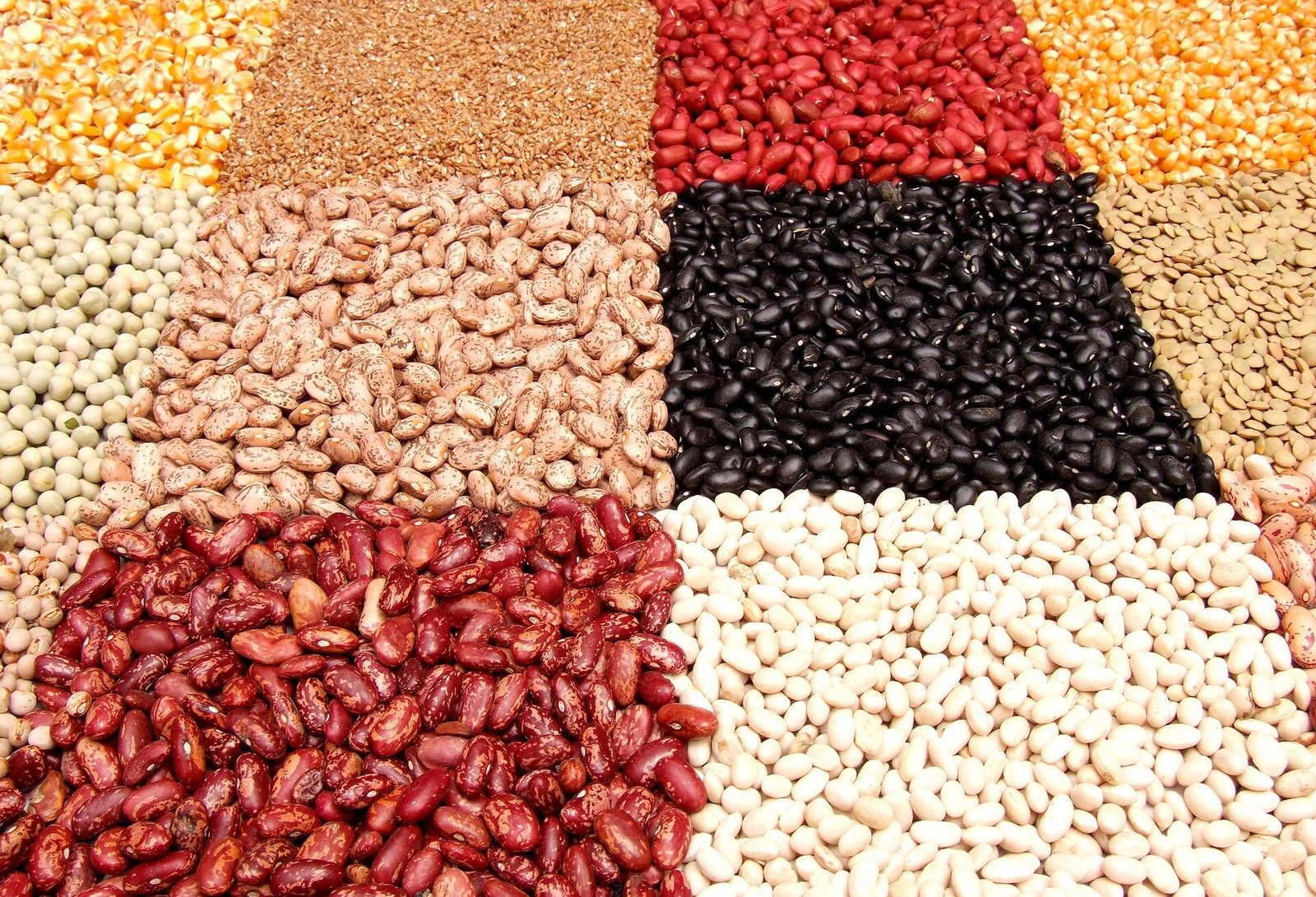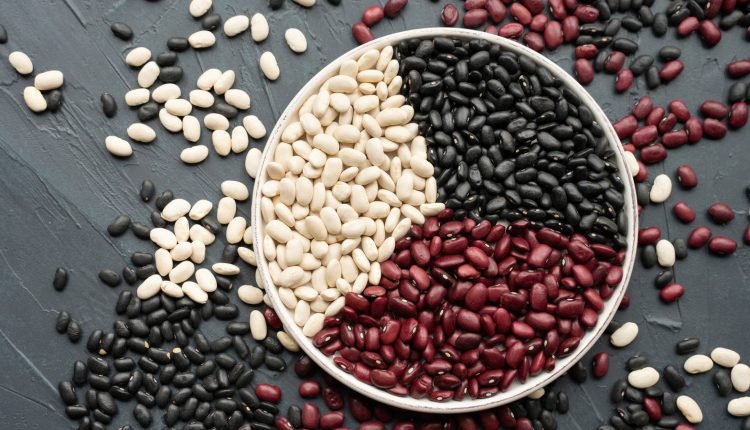Beans: When common food slips beyond common people
Beans: When common food slips beyond common people
By Tosin Kolade, News Agency of Nigeria (NAN)
Beans once staple and budget-friendly source of protein for many Nigerian families has become increasingly rare on menu lists due to its rising price.
Historically a fundamental part of the diet for low- and middle-income households, the price of beans has recently skyrocketed, influenced by inflation, poor harvests and regional security challenges which have impacted on agriculture.
In July 2024 the National Bureau of Statistics (NBS) reported that bean prices soared to unprecedented levels creating widespread concern among consumers and farmers alike.

The price of a 50kg bag of beans has more than doubled over the past two years, reflecting a dramatic increase of over 100 per cent in the last year alone.
Beans, primarily grown in northern states like Borno, Gombe, Kano, Sokoto, Yobe, and Zamfara, is crucial to the Nigerian diet.
Analysts say the rising cost of fertilisers which rose to an average of 83 per cent across 13 African countries, and 111 per cent in Kaduna State has impacted production.
They say the conflict between Russia and Ukraine, major global fertiliser exporters, has exacerbated delays in the supply chain, contributing to soaring prices.
According to them, without more robust interventions, beans may soon become a luxury item for most Nigerian families, leaving the population grappling with both economic and nutritional hardships.
For many Nigerians, the high cost of beans has forced dietary changes. Mrs Amina Bello, a mother of five from Kaduna, shares her experience.
“Beans used to be a regular meal for us, but now we can only afford it once a week.
“We’ve had to switch to less nutritious alternatives like cassava and maize, Popular bean-based dishes like ‘moin-moin’ and ‘akara’ are disappearing from many tables”.
Nutritional Experts have warned about the potential long-term effects on food security and public health.
Dr Albert Akintoye, a nutritionist, warns that reduced access to beans could lead to increased malnutrition, particularly among children and vulnerable populations.
“Beans are a major source of protein and essential nutrients, Their reduced availability could have serious health consequences”.
Another Nutritionist, Ms. Sarah Andoaka, says Beans are known for their ability to provide a sense of fullness and contribute to overall well-being.
According to her, People may find it more difficult to maintain a balanced diet when they are removed from their typical diet, which could result in inadequacies.
“Since beans are necessary for the body to maintain daily physical and mental work, their absence may eventually have an impact on energy levels and overall health”.
However, the Cowpea Farmers Association of Nigeria (CFAN) revealed that moves were currently being made to see that the issues identified were rectified.
For Sale Tunfafi, Kano State deputy chairman of CFAN, the high cost of beans being experienced in the nation was the aftermath of several issues.
He noted that the issues didn’t affect beans only, but that the beans issue was the worst.
He, however, said that with the association’s move the price had started dropping.
He explained that one of the reasons behind the high cost was the drop in beans production last year.
According to him, beans being one of the last farm produces harvested every year was affected by herders’ invasion of farmlands as the dry season set which resulted in serious damages to beans farms.
He also identified the high cost of agricultural inputs as another barrier that forced many beans farmers to reduce the size of their farms.
Read Also: Controversy as Alia Seizes Rep Constituency Palliatives
He further revealed that another reason was beans exportation by merchants to neigbouring countries.
It may be worthy to note that Nigerian government has initiated several policies aimed at boosting local production and stabilising food prices.
Yet, many argue that these efforts are insufficient in addressing the underlying challenges.
To change these narrative following the pressure of prices on beans and other food items that have increased in Nigeria, Minister of Agriculture and Food Security, Abubakar Kyari, announced a raft of measures.
This, he said, includes the distribution of fertilisers to farmers and initiatives to procure tractors.
As the rainy season continues, research institutions are stepping up efforts to enhance beans production.
The International Institute for Tropical Agriculture (IITA) is among those leading the charge.
The institute recently held a two-day pre-season and planning workshop focused on strengthening the sustainable distribution of improved cowpea seeds to smallholder farmers in Nigeria.
Professor Lucky Omoigui, a seed specialist at IITA, explained that the workshop aimed to unite all stakeholders in the legume seed value chain.
The goal was to develop a comprehensive work plan, outline activities for the 2024 wet season, and establish a roadmap for creating a robust legume seed system in Nigeria.
Omoigui noted that challenges in cowpea production often stem from farmers’ limited access to quality seeds, agro-inputs, and improved seed varieties designed to boost yields and address production issues.
As Nigeria contends with soaring beans prices, experts are calling for a comprehensive approach to stabilise costs and boost local production.
Prof. Bukar Shehu, a food security expert, that tackling the high cost of beans requires several strategies.
Shehu advocates for enhancing local bean production by equipping farmers with improved seeds, fertilizers, and training.
“Investing in better farming practices and support systems is crucial for increasing productivity and reducing costs.
“There is the need to strengthen supply chains through improved storage and transportation infrastructure to minimise post-harvest losses and lower market prices”, he said.
Additionally, Prof. Shehu stressed the importance of supporting research into high-yield and drought-resistant bean varieties to further enhance efficiency.
He said that cooperative farming initiatives could reduce costs and improve bargaining power of farmers.
Stakeholders believe that government policies aimed at stabilising prices and addressing inflation are vital for long-term solutions.
They also suggest that educating consumers about alternative food options and promoting urban agriculture could help alleviate pressure on bean prices by diversifying food sources.

